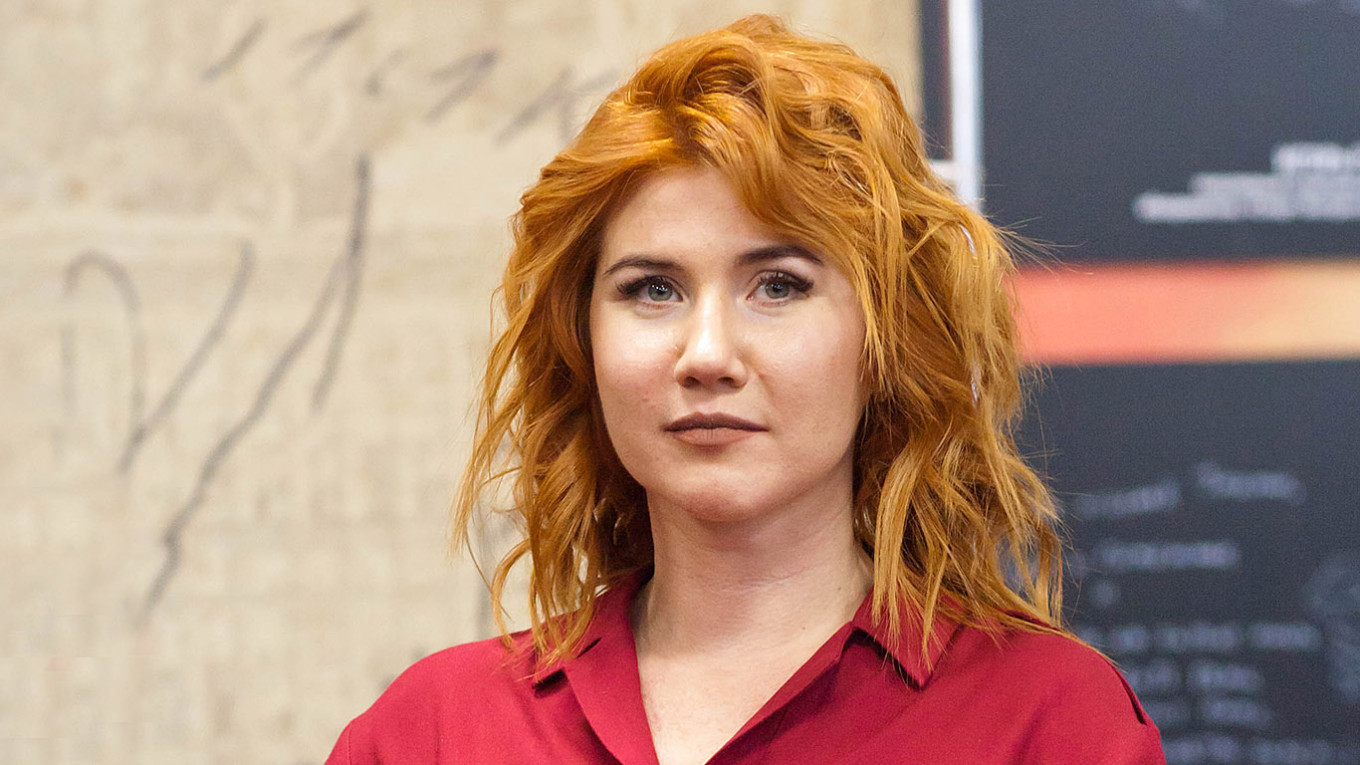Anna Chapman (née Kushchenko) briefly enjoyed the international spotlight when she was arrested in New York and later exchanged in a large spy swap.
In June 2010, Chapman and nine others were arrested by the FBI for failing to notify U.S. authorities of their cooperation with a foreign government. Less than two weeks later, Chapman pleaded guilty to illegally acting on behalf of Russia, was deported in exchange for four Russian nationals previously imprisoned for spying — including the now much more famous Sergei Skripal. The case soon faded from public memory in the West.
But in Russia Chapman’s popularity skyrocketed. Russian tabloids dubbed her “Agent 90-60-90” (90-60-90 being the centimeter version of 36-24-36), and the failed redhead spy reinvented herself as a TV host and nutrition coach, and then even launched her own clothing brand.
But her origin story remains the gift that keeps on giving. Chapman recently released a book in Russian entitled “Bondianna. To Russia With Love,” allegedly a mix of fiction and memoir.
Bondianna (with a double “n”) is a wordplay on Chapman’s first name and Bondiana, a term popular in Russian media for all things James Bond. The book’s marketing is purposefully misleading, hinting at a dramatic reveal about Chapman’s secret life as a spy. In fact, the book is entirely devoted to her years in London, before she began working for Russian intelligence.
The book starts off dramatically, with Chapman’s British husband, Alex, attempting to kill her with a drill. The opening sentence reads: “Something sharp and cold pierced her temple.”
Chapman manages to flee from Alex, who falls into a drunken stupor. She spends the next night under a bridge with a group of homeless people, then meets an oligarch at the Russian Economic Forum in London. He puts her up for two weeks in the presidential suite at Claridge’s and leaves £100,000 for her in a safe.
Surprisingly, the money doesn’t last long, even after Anna lands a promising job at a private jet company. Even when she’s broke, Chapman continues to rent luxury apartments in posh neighborhoods — a habit the book never explains.
The book is full of inconsistencies. Chapman, the daughter of a career diplomat, writes, “I managed to rise from the very bottom.” And it’s puzzling that whenever she returns to her fairly affluent family in Moscow, she has to share a bed with her younger sister.
As for Chapman’s future work as a spy, the book occasionally includes self-congratulatory flash-forwards, with lines like, “Just a few years later, I would hear the same phrase from my country’s president in a private meeting at his residence,” or, “Back then, I couldn’t have imagined that in two decades I’d launch my own communications course, where I’d teach people how to get others to like them and make useful connections.”
There’s no shortage of propaganda in the book. For example, when Kirill meets Anna on a flight from London to Moscow, they talk politics. Chapman quotes herself: “The Soviets always did everything for others. Like a mother who selflessly sacrifices everything for her children. It is important to us that all our fraternal nations are fed and clothed. But we invested nothing in ourselves.”
It’s very hard to imagine two young people having this conversation on a plane.
Towards the end Chapman again meets the oligarch who arranged for her stay at Claridge’s. He takes her to Switzerland and they fall in love. At the same time she meets with Boris Berezovsky, parties with him around London and sets him up with her roommate.
The book ends with Anna quitting her job for no clear reason and moving back to Moscow. There, she’s recruited into the intelligence service — under the guise of attending therapy sessions.
Reader reactions on LitRes.ru, one of Russia’s main hubs for ebooks, range from criticizing Chapman for not being patriotic enough to gushing how the book made them think about their own lives. Many say they’re already looking forward to a sequel.
“Bondianna" feels less like a spy thriller than a story of self-reinvention, laced with a heavy dose of propaganda. If there is indeed a sequel, we might finally learn what Chapman’s life as a spy actually looked like.
A Message from The Moscow Times:
Dear readers,
We are facing unprecedented challenges. Russia's Prosecutor General's Office has designated The Moscow Times as an "undesirable" organization, criminalizing our work and putting our staff at risk of prosecution. This follows our earlier unjust labeling as a "foreign agent."
These actions are direct attempts to silence independent journalism in Russia. The authorities claim our work "discredits the decisions of the Russian leadership." We see things differently: we strive to provide accurate, unbiased reporting on Russia.
We, the journalists of The Moscow Times, refuse to be silenced. But to continue our work, we need your help.
Your support, no matter how small, makes a world of difference. If you can, please support us monthly starting from just $2. It's quick to set up, and every contribution makes a significant impact.
By supporting The Moscow Times, you're defending open, independent journalism in the face of repression. Thank you for standing with us.
Remind me later.






